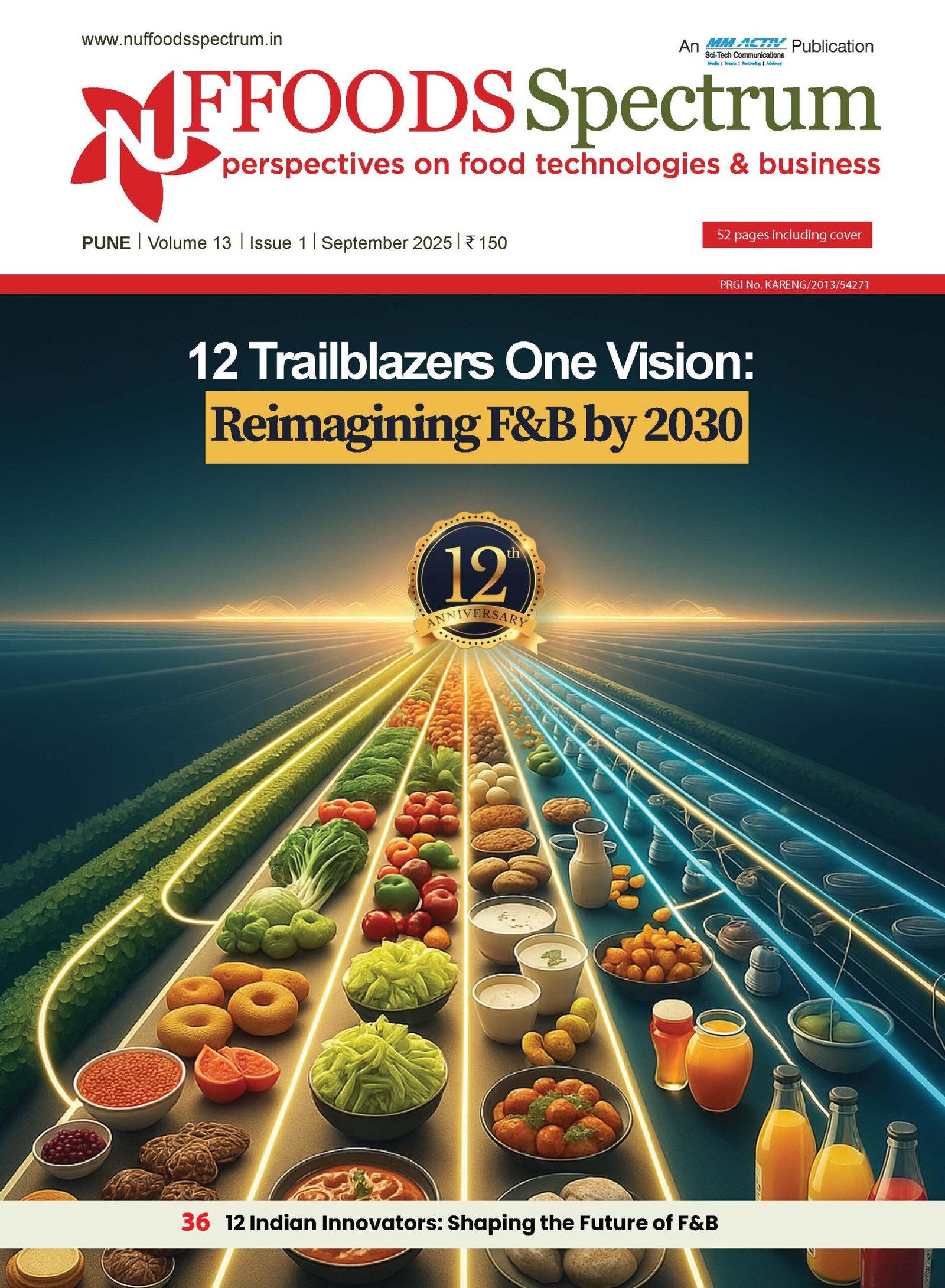Inside BENEO’s new pulse plant: pioneering sustainable protein from faba beans
As NUFFOODS Spectrum marks its 12th anniversary, we stand at a defining moment in India’s food and beverage journey. The path to 2030 is being shaped by dynamic forces, shifting consumer preferences, rapid technological advancements, sustainability imperatives, and a heightened emphasis on health and wellness. Across nutrition, dairy, beverages, processed foods, agri-commodities, equipment, and packaging, forward-looking enterprises are redefining what it means to be competitive and relevant in a market that is as demanding as it is rewarding.
We are witnessing a concerted push towards developing products that blend tradition with science, delivering fortified staples, functional foods, and plant-based alternatives that meet the needs of a health-conscious population. Alongside, indulgent categories are being reimagined to incorporate low-sugar, high-protein, and clean-label formulations without compromising on sensory appeal. In dairy, value addition is driving growth through probiotic offerings, high-protein variants, and ready-to-drink formats, while technology-led farm-to-consumer models ensure traceability, quality, and farmer empowerment. The beverages segment is tapping into premiumisation and craft experiences, catering to evolving palates and global aspirations.
In the processing space, companies are leveraging automation, precision engineering, and energy-efficient systems to boost productivity, minimise waste, and enhance food safety, while simultaneously ensuring scalability for both domestic and export markets. Packaging innovations are responding to the dual demands of sustainability and performance, with recyclable materials, advanced barrier technologies, and smart tracking solutions becoming mainstream. The agri-commodity segment, a pillar of India’s food economy, is evolving through integrated value chains, precision farming, and diversification into health-focused grain variants to strengthen India’s leadership in global trade.
Underpinning all of this is a deep commitment to sustainability—moving beyond compliance to embed environmental responsibility into sourcing, manufacturing, and distribution. Digital transformation, from AI-powered quality checks to blockchain-enabled traceability, is no longer a niche adoption but a competitive necessity, reshaping how the sector interacts with suppliers, retailers, and end consumers.
The shared vision emerging from industry leaders is clear: by 2030, India’s F&B sector will not only be larger in scale but richer in value, built on a foundation of innovation, inclusivity, and resilience. It will be a sector that nourishes its people, strengthens its farmers, competes on the world stage with branded and value-added products, and does so while safeguarding the planet’s resources.
This anniversary issue captures that vision through candid conversations with 12 trailblazers across the value chain, alongside the FSSAI’s strategic regulatory outlook for 2030. It is a milestone moment, not just for this publication, but for an industry whose growth story is intertwined with India’s own transformation. As we look towards 2030, the questions are no longer about whether the sector can meet rising global standards, but how it will set them. The answers lie in the ingenuity of its innovators, the dedication of its producers, and the foresight of its leaders, qualities that will define the next decade of Indian food and beverage.
This anniversary special edition serves as both a milestone and a mirror, reflecting the industry’s evolution while looking ahead to its next big leap. Through these Vision 2030 conversations, we invite our readers—industry leaders, policymakers, investors, and entrepreneurs, to join us in reimagining an Indian F&B sector that is healthier, more sustainable, more inclusive, and globally admired. Because the future of food is not just about what we eat—it’s about how we grow, process, package, and deliver it in a way that nourishes both people and the planet.
Mansi Jamsudkar Padvekar

